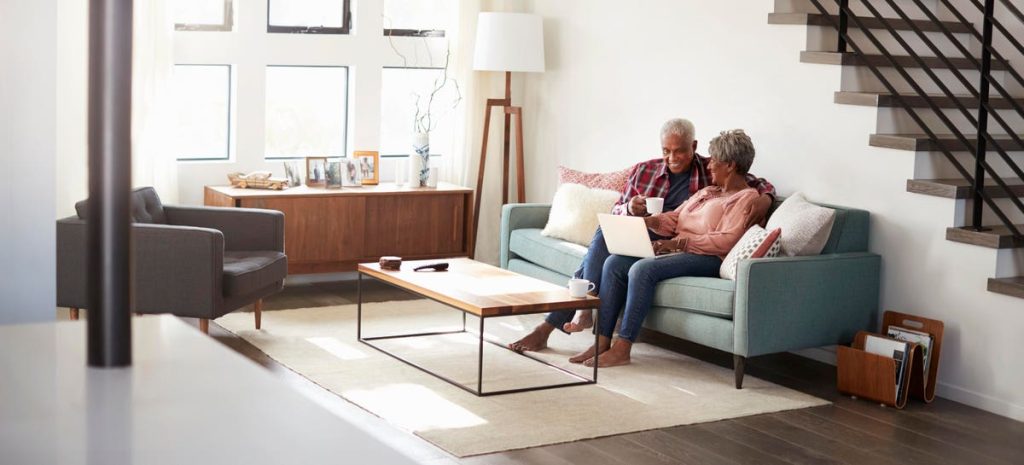There are many reasons to hire an interior designer. Whether it’s renovating a bathroom, kitchen, or entire house—getting a professional not only makes the process easier but maximizes budget and return on investment. But working with an interior designer isn’t just about creating new spaces, it’s about fixing mistakes. Sometimes these mistakes are the result of bad planning. Other times, it’s a lack of foresight. These are the mistakes interior designers are called in to fix the most.
Quality Issues
Unlike many of the homes of yesteryear, there are plenty of times when corners are cut in construction today. Maybe it’s choosing cheap-looking finishes (white subway tile—again) or not having the best team to do the build-out. So, it’s no surprise that interior designer Bradley Odom tells me he often has to redo homes that weren’t built properly in the first place. “My brand has really been built on a dedication to how things are made, who made them, and where they come from. Often, after a few years, people realize that the pieces they have don’t hold up. We bring in pieces that are truly timeless, which is great, because they’ll have them for a while!”
Ironing Out The Small Details
While furnishing a space with large pieces such as sofas and beds can be easy, the hard part can be choosing smaller pieces and ironing out the details. Audrey Scheck is often brought in to complete these types of projects. “An overwhelming amount of our clients have a great eye and the ability to source beautiful furniture pieces. However, when it comes time to layer those larger furniture pieces with other elements that are needed to complete the room, people feel stuck,” says the interior designer. “From ground coverings to window treatments and layered textiles to decorative objects, there are so many decisions that have to be made. In addition to designing for new builds and remodels, we also offer furnishing and styling services to help clients with precisely this task. We’ll work around existing pieces and jump in to help them layer their home in a way that makes it feel complete.”
Making Spaces Multi-Functional
Multi-functional spaces are essential in today’s post-Covid world. “What was formerly a guest room now needs to double as a home office. What might have once been a dining room now needs to be converted into a second home office. With so many people working from home, we have definitely seen an influx of requests for pushing the limits to make spaces work double duty,” says Scheck.
Whether it’s creating a custom Murphy bed that’s also a desk, or finding the right office chair that can fit into a room with a Queen sized bed and two nightstands— getting professional help to build out these rooms is crucial.
Finishing Incomplete Projects
Social media and television have led many people to think it’s easy to DIY an entire home. But in reality, these projects are far more work than originally anticipated. “When it comes to remodeling, we frequently take over for clients who started the process before realizing that they didn’t have the bandwidth to tackle their own construction project. From finding the right contractor to sourcing materials and managing the project, the logistics of a remodel can quickly become overwhelming. Having a designer by your side to help facilitate relationships with trusted professionals will drastically limit the risk of things going awry,” explains Scheck.
Adjusting Disproportionate Design Disasters
While many people think they know how to design a room based on something they’ve seen on social media, things often look very different in real life. For example, that tiny side table just won’t work adjacent to a seven-seater sectional. Star of HGTV’s Unfinished Business and interior designer Shay Holland tells me she is often brought in to fix these issues. “One of the most common missteps is buying pieces that are too big or too small. The scale is off so the pieces are out of whack with each other or with the space itself. Oftentimes apartment dwellers who are used to working with limited square footage and eight-foot ceilings end up buying things that are too small when they move into their first house. The furniture feels swallowed up by the larger rooms and higher ceilings.”
Designers often play around with scale to create exciting juxtapositions in a space. “For our HGTV homes, I taped out the room’s pieces with newspaper before ordering anything because I only had one shot to get the scale right. This gave me more of the visual that I needed than just having measurements to make sure pieces wouldn’t dwarf rooms or create awkward flows. It’s way easier to peel tape off the floor than to realize later that the chaise of a sectional that’s been delivered smacks up against the fireplace,” says Holland.
Fixing Floorplan Fails
“If designers were fairy godmothers, we would go around fixing all those frustrating floor plans. Correcting an awkward and dysfunctional layout is among the most vital ways to improve your home’s flow and functionality,” says Holland.
There are many reasons for bad layouts. Some layouts are simply dated, while others just weren’t planned properly in the first place. “Sometimes the only remedy to a poor layout is a complete transformation— often involving major renovations like you see on our HGTV shows. But many times, smart tweaks in flow and placement can totally improve the way a room feels and functions.”
Read the full article here



